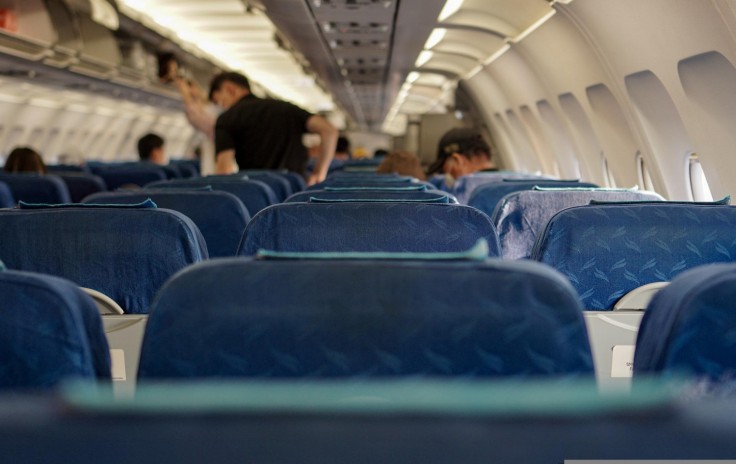
Truthfully, air travel is not suggested for infants younger than seven days of age due to cabin pressure in an airplane. The pressure constantly changes, and newborn babies' systems may find it hard to adjust. Although airlines have different policies regarding the age of air travel, it's best to check before making any plans. If the baby is younger than seven days and must travel by air, consider talking to your doctor first.
Also, according to Healthy Children, infants born prematurely with chronic heart or lung problems may encounter issues with the change in oxygen level within the air cabin.
Traveling by air with babies for the first time may be exciting for parents, but it can be a nightmare for the infants; thus, it must be ensured that the environment is safe for the baby. Pediatricians believe that a 4-to-6-week-old baby can handle airplane flights.
Changes in cabin pressure may be painful, specifically to babies with smaller eustachian tubes, a tube in the ear that helps even out the pressure. For babies, breastfeeding and sucking from a bottle may offer some relief, especially during takeoff and landing. For older children, chewing gum or eating lollipops may help.
Do young ones need to have a passport for international travel?
All United States citizens, including infants, must have a passport to travel internationally. Parents need to apply with their baby in person using the form DS-11. Make sure to bring the infant's birth certificate and a photo taken within the last six months. The tricky and difficult requirement for parents is to take a photo of their baby alone. The U.S. Department of State - Bureau of Consular Affairs suggests laying the baby on its back on a white blanket or covering a car seat with plain white cloth and sitting the baby on it.
The Federal Aviation Administration (FAA) suggests parents place their children on window seats as both aisle and middle seats are at greater risk of having items falling on them from the baggage compartments above. They also risk getting knocked into by people or carts rolling through the aisle.
Some parents and guardians decide to purchase a separate seat for the baby or end up sitting on an extra seat they can use. Usually, parents have their baby on their lap. Airlines still charge for fares even when the babies sit on their parents' laps the entire flight. Safety concerns about holding a baby on the lap while flying were also raised. Parents reported that although the expense is a big consideration, the most suggested is to allow the baby to sit in their own seat approved for air travel.
Certain germs may occur during a flight
Your baby could be exposed if someone sitting nearby is sick or infected with cold or certain germs. An infant's immune system is still weak to some of the viruses and bacteria that may be floating around on both airplanes and airports.
Also, some babies may have trouble breathing during takeoff or landing due to unfamiliar settings and lower air pressure. They may scream or cry during the flight due to fear, and parents must be prepared to handle the worst.
Very Well Family suggests giving kids a blanket or favorite stuffed animal to help them feel safe and secure.
Related Article : Breastfeeding Mom Losses 1K Ounces of Breast Milk Flying to Las Vegas; Calls for Better Airline Policies